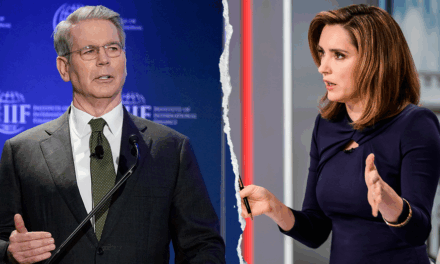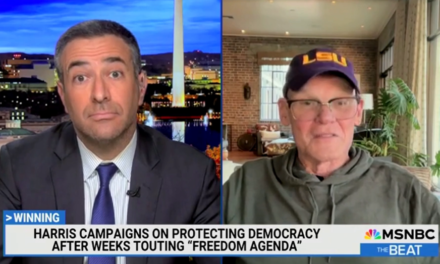A midwifery student from the United States currently studying in Scotland has sparked a debate over free speech rights following a pro-life post she shared on Facebook. This incident has drawn significant attention not just from her university community but also from broader social media platforms, raising questions about the boundaries of expression in educational environments.
The student, whose identity has not been disclosed due to privacy concerns, initially intended her post to share her personal beliefs on the pro-life movement. Her viewpoint, which emphasizes the potential of unborn life, resonated with some and created a backlash from others who deemed her comments inappropriate and offensive. The reaction from her peers was swift, with a mix of support and criticism flooding in online.
As a midwifery student, her perspective is particularly poignant given the nature of her studies, which often touch upon issues of maternal health and reproductive rights. However, the intersection of her academic focus and personal beliefs has ignited a firestorm of debate about the importance of free speech on university campuses, especially when it pertains to contentious topics like abortion.
The post was met with widespread controversy, leading to discussions in lecture halls, social media forums, and beyond. Many students expressed their concerns that her views undermined the inclusive and supportive environment that universities strive to maintain. Others argued that stifling dissenting viewpoints contravenes the ideals of academic freedom.
In the aftermath of the incident, the student found herself embroiled in various discussions about the principle of free speech. She argued that everyone should have the right to express their beliefs, regardless of how controversial those beliefs may seem to others. “I never expected my post to ignite such a passionate reaction,” she stated. “I simply wanted to share my thoughts on an issue that is very important to me. It is vital that we can discuss differing views without fear of retribution.”
The situation escalated to a point where the university administration felt compelled to intervene. Some officials expressed concern over the potential impact of the post on campus climate and inclusivity. “While we uphold the importance of free speech,” a spokesperson from the university indicated, “we also have a duty to ensure that all students feel safe and respected within our community.”
This response from university officials has led to further discussions about what constitutes respectful dialogue and how to balance differing opinions within educational settings. It raises fundamental questions: Where should the line be drawn when it comes to freedom of expression? Should universities prioritize a safe environment over the uninhibited expression of beliefs?
Social media has taken center stage in this debate. Numerous Facebook groups and Twitter threads have sprung up dissecting the nuances of the situation. Supporters of the student argue that her right to free speech should not be compromised simply because her views challenge the prevailing norms. They contend that discourse around sensitive subjects must be encouraged rather than suppressed, citing the importance of exposure to varied perspectives for personal growth and intellectual development.
On the opposite end, critics argue that the promotion of certain beliefs—especially those relating to personal autonomy, such as reproductive rights—can contribute to a hostile environment for those who might feel marginalized by these views. They maintain that free speech should come with an ethical obligation to consider the impact one’s words can have on others, especially in heterogeneous communities like universities.
Legal scholars and free speech advocates have also chimed in with their thoughts, framing this incident as part of a larger trend where student expression is increasingly scrutinized. Many agree that while students should have the freedom to voice their beliefs, they must also be cognizant of the context in which they express these views. “It’s a double-edged sword,” explains one legal expert. “Students must navigate their rights thoughtfully, balancing the freedom to speak with the responsibility to listen and understand others’ discomfort.”
As this case gains attention, it adds to the ongoing discourse surrounding free expression in academic settings across the United States and globally. The intersection of politics, morals, and personal belief systems creates a complex web that institutions are grappling with as they try to define and uphold their core values.
The American midwifery student now finds herself not just a participant in a contentious debate but a potential face of the fight for free speech in academia. She has begun working on initiatives aimed at encouraging dialogue around free expression, seeking to create forums where students can openly discuss their beliefs and engage with opposing viewpoints without fear of backlash.
She proposes that universities should actively promote programs that foster respectful discourse while also providing resources for conflict resolution among students who may find themselves at odds due to differing beliefs. Her hope is to establish a culture that acknowledges diverse perspectives and engages in thoughtful conversation rather than shutting down dialogue through censorship.
Support for her cause has proliferated online, with many fellow students expressing solidarity and gratitude for her courageous stance. “It’s so important for us to be able to share our views, even when they differ,” one student commented. “If we can’t talk about these things openly, how can we ever learn from one another?”
As she continues to navigate the complexities of free speech in her academic journey, the midwifery student remains committed to her beliefs while also advocating for the rights of others to express theirs. The incident has undeniably shed light on the need for ongoing conversations about free speech, inclusivity, and the role of educational institutions in guiding these discussions.
As the discourse evolves, one thing remains clear: The debate surrounding free speech in academia is not going away anytime soon. It highlights the perpetual challenge of balancing personal beliefs with communal values, a struggle that resonates deeply within educational landscapes across the globe.
As the student continues to advocate for her right to share her opinions openly, she invites others to join in her quest for a dialogue rich with variety and respect. “Let’s champion conversation over conflict, and create spaces where all voices can be heard, regardless of their alignment,” she pleads. “It’s only through understanding each other’s experiences that we can truly cultivate an inclusive and vibrant community.”
































